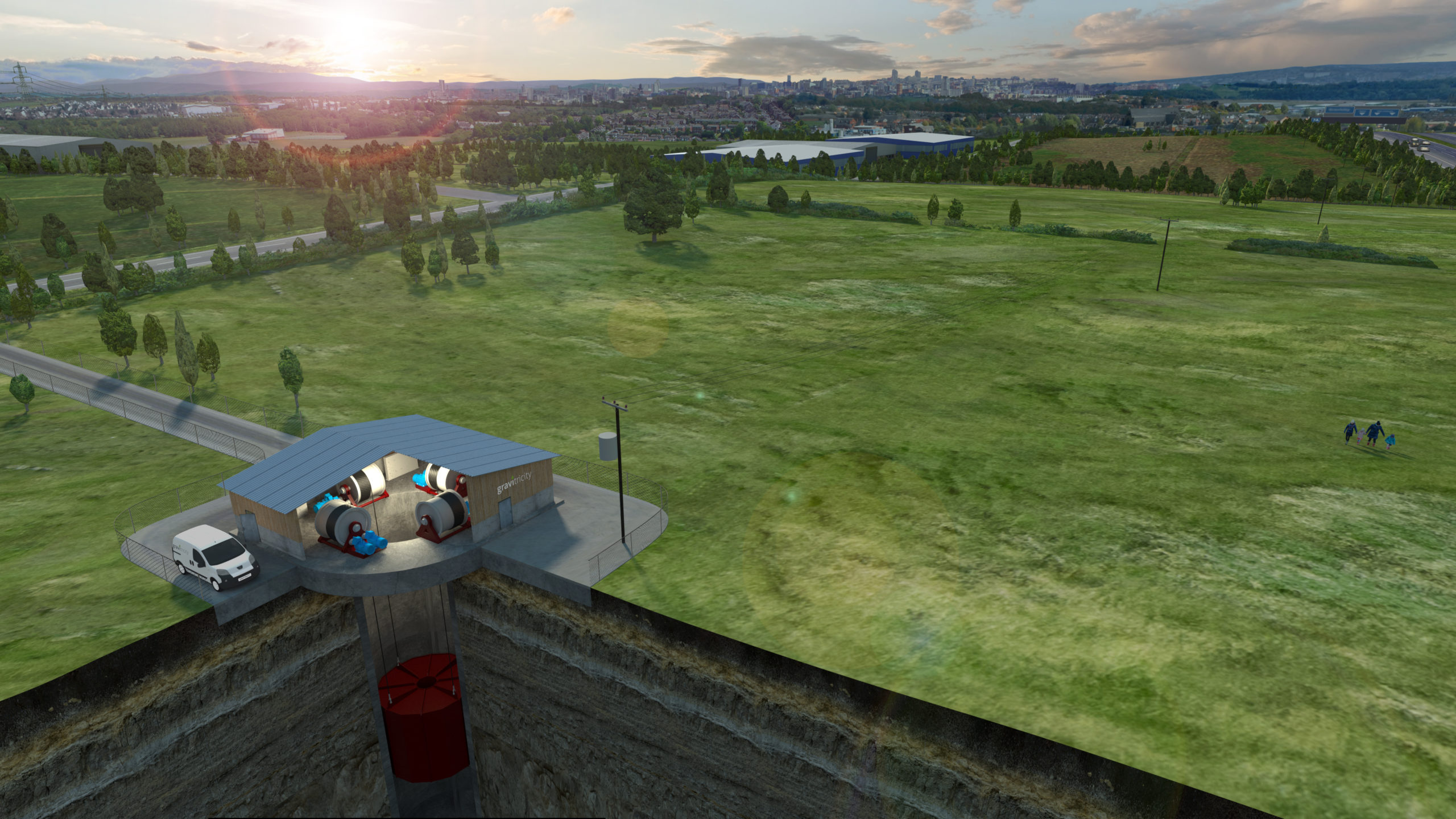
A Scottish energy storage firm has secured £194,000 from the UK Government to find a demonstration site in India suitable for its gravity energy storage technology.
It comes in a bid to identify how gravity energy storage can help decarbonise one of the world’s fastest growing economies.
Edinburgh-based Gravitricity is behind the energy storage system which works by raising heavy weights – totalling up to 12,000 tonnes – in a deep shaft and then releasing them when energy is required.
The firm said the process could be ‘ideally suited’ to India, which has a target to install over 500GW of renewables by 2030 to supply its fast-growing economy. It has partnered with Indian firm, Panitek Power, for the 12-month project.
Analysts calculate Gravitricity’s system – which can operate for up to 50 years – can store energy at half the cost of lithium-ion batteries. The firm added that green tech pioneers are already planning to install their invention in decommissioned mineshafts and custom-built shafts in the UK and mainland Europe.
Chris Yendell, project development manager at Gravitricity, said, “India has very few fossil fuel resources and is committed to adopting renewables to fuel its economic growth. Solar power is extremely cheap in such a sunny country but brings with it a need for energy storage to meet peak morning and evening demand, both of which typically occur during the hours of darkness.

“With the introduction of renewable energy generation at this scale, new flexible storage services will be essential to ensure the grid continues to operate in a stable manner. Gravitricity’s versatile technology is ideally placed to deliver the balancing services required to achieve this stability.
“It is also a relatively simple technology. It doesn’t rely on any rare earth metals, and has a very long lifespan, meaning it can be manufactured and deployed locally alongside vast amounts of new grid infrastructure which will also be required to meet the rapid growth in demand.”
Gravitricity will rely on the in-country expertise of energy specialists Panitek Power, who will work with local partners to identify sites and supply chain firms to deliver a specific proposal which could be built in the near term.
Parag Vyas, chief commercial officer at Panitek Power, commented, “India has an immediate and growing need for energy storage technologies. In many locations there is little or no grid, and it makes sense to integrate energy storage within their evolving infrastructure to cope with intermittent generation.
“In addition, as a country’s share of renewables rises, this can cause frequency and voltage disturbances in the existing grid due to mismatch of load demand and generation. Gravitricity’s technology has a response time of less than one second and can be cycled thousands of times, making it ideally suited to grid balancing and rapid frequency response services.”








